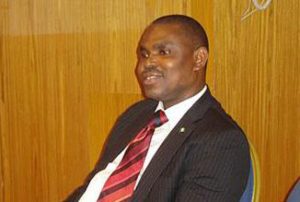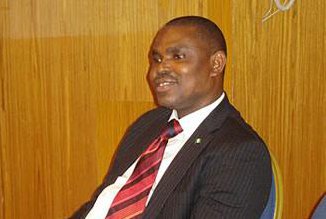 The anger, as well as surprise, which surrounded the announcement that Pastor Enoch Adeboye was relinquishing his position as the head of the Nigerian unit of the Redeemed Christian Church of God was palpable. Some couldn’t understand why the government was getting involved in the activities of the ‘righteous’.
The anger, as well as surprise, which surrounded the announcement that Pastor Enoch Adeboye was relinquishing his position as the head of the Nigerian unit of the Redeemed Christian Church of God was palpable. Some couldn’t understand why the government was getting involved in the activities of the ‘righteous’.
The revered pastor attributed his resignation to the rules set by the Financial Reporting Council of Nigeria (FRCN)—an agency established by an Act of Parliament — on the tenure of heads of all not-for-profit organizations. (This rule stipulates a maximum of 20 years, or a 70-year age limit, for heads of churches and mosques, who have occupied all major governance positions.)
Ordinarily, this would have been a non-issue to many because successors would still have to come from the ‘righteous’ within these churches and mosques, and can never be imposed on them.
Besides, for some organizations, like the Redeemed Christian Church of God, you could argue that such change of baton might not mean much. After all, Adeboye is still the world-wide leader. A bishop can never be as powerful as a pope.
But the leading opposition party took advantage of this confusion. They argued that the intent of such rule was to weaken the church. Even the Christian Association of Nigeria (CAN) joined in condemning the ‘government’ – it didn’t matter to them that the rule also applied to mosques. (Some members of CAN had earlier contested this rule in court, but lost.)
And the number one culprit, which they wanted people to know of, was the President. He has always been labelled as someone who had an Islamic agenda.
But the President had absolutely nothing to do with this rule. Apparently, noticing the rhetoric being used to cast him in a bad light, and in order to make a point, the President quickly went ahead to fire the executive secretary of FRCN, Jim Obazee.
The Obazee-led FRCN had released a modified code of corporate governance for public, private and not-for-profit organizations last October. While the private sector was required to mandatorily comply, not-for-profit organizations were required to comply or justify non-compliance.
These new codes of conduct had been vehemently criticized: The private sector, even religious organizations, felt the rules were too harsh. Some even felt FRCN had overstepped its bounds by increasing fines and levies for corporate offenders.
Little wonder, therefore, that many saw Obazee’s sack as ‘good riddance to bad rubbish’. He had been accused of buying a house in America after it was alleged that he was used by former President Jonathan to ‘’sack the former CBN governor, Lamido Sanusi’’. A staff of FRCN had accused him of sexual assault and he had been recently interrogated by the EFCC on the finances of FRCN.
But what really are the intents of this code of conduct for religious bodies.
Most churches and mosques are registered with CAC as Incorporated Trustees in Nigeria, just as NGOs are. Thus, assets of churches are placed under the trust and confidence of their Trustees. And unlike a shareholder, a Trustee is not supposed to earn a profit, but expected to promote the objective of such organization.
A corporation status is conferred on Trustees, who could be sued instead of the church or mosque. With this status, churches can go into businesses, such as running schools and hospitals, as far as they are not for profit.
It is important to note that churches and mosques which are incorporated grapple with issues normal businesses do, such as disputes within employees, membership tussles, property disputes, contractual disputes, negligence claims and even outright theft by members.
And the FRCN, just like the Charity Commission in the UK, intends to use codes of conduct to ensure that leaders and founders of churches do not became dictators in their organizations. (The codes set by the Charity Commission in the UK for churches are even more stringent.)
One reason propounded for government involvement in regulating not-for-profit organizations is this: Organizations and individuals who enjoy tax exemptions should be prevented from using their offices to attain excessive benefits for themselves and their families. (There have been many instances where leaders of charities [churches are referred to as charities in the UK] paid themselves outrageous salaries and got involved corruption, despite having the privilege of not paying taxes.)
Ordinarily, religious organization are expected to be ethical but in some cases they have fallen short. Sadly, government – which ought to take examples from these organizations and could overstep its bounds – becomes the only institution left to ensure probity.
And here is the lesson in all these: In order to minimize the interference of government in religious organizations, faith-based organization should come back to the basics, which is nothing but selfless and genuine commitment to the teachings of their faiths.
Government should learn from churches and mosques, and not the other way round.
Courtesy: THE CABLE







